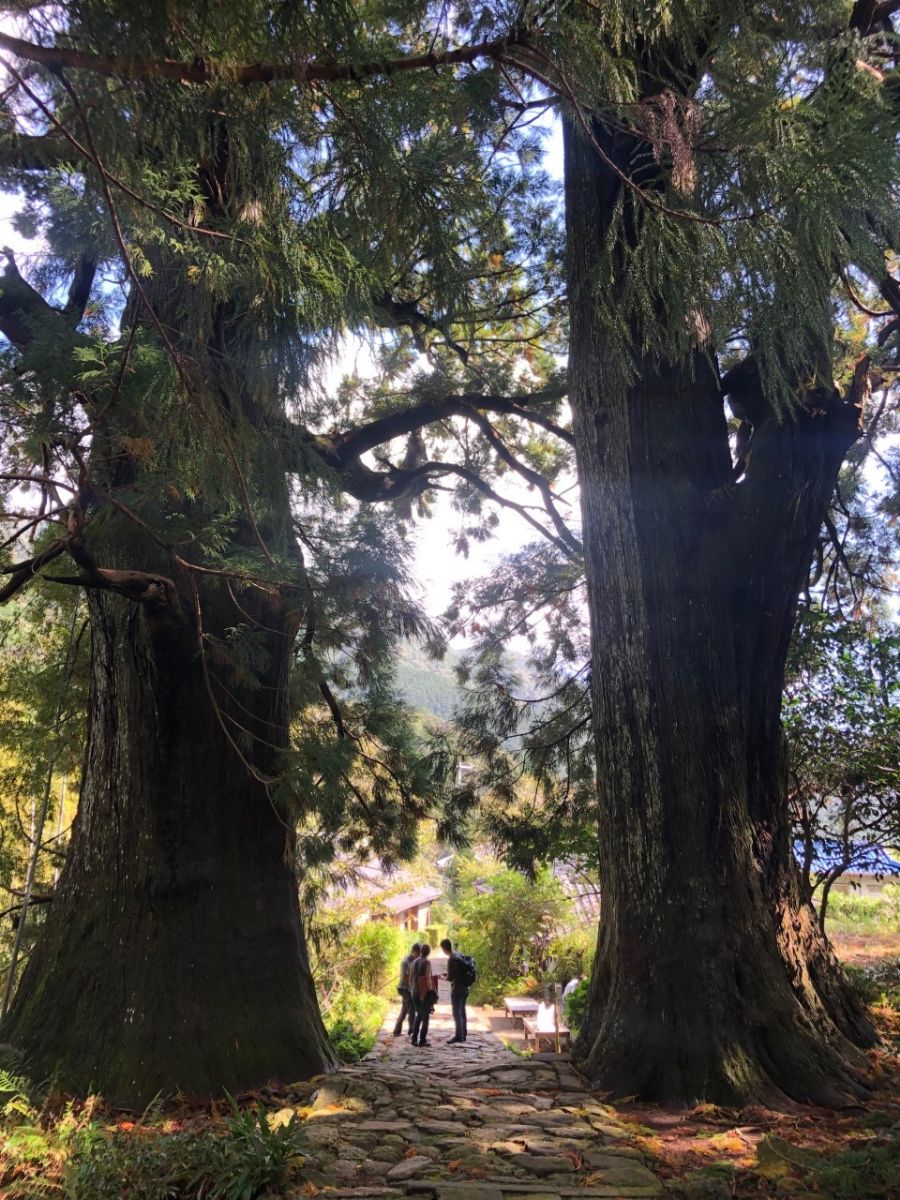Shikoku Pilgrimage
Key information: Shikoku Pilgrimage 
- The Shikoku pilgrimage is arguably Japan's best-known pilgrimage route, a 1,150km or so pilgrimage linking 88 temples in a sacred circuit.
- You can of course walk shorter stretches.
- Remote mountainous landscape and deep cultural and spiritual resonance throughout.
Walkopedia rating
- Walkopedia rating89
- Beauty30
- Natural interest14
- Human interest17
- Charisma30
- Negative points2
- Total rating89
- Note: Neg: likely bad weather
Vital Statistics
- Length: Your choice - up to 1,150km!
- Maximum Altitude: 1,982m
- Level of Difficulty: Variable
This walk description page is at an early stage of development, and will be expanded over time. Your comments on this walk, your experiences and tips, and your photos are very welcome.

WALK SUMMARY
The Shikoku pilgrimage is arguably Japan's best-known pilgrimage route, and certainly its biggest pilgrimage-challenge: a 1,150km or so, 1,200 year old pilgrimage linking 88 (a lucky number) temples in a sacred circuit in the footsteps of the monk-saint Kukai (or Kobo Daishi) into the heart of Japanese Shingon Buddhism. (See our Kumano Kodo page for more information on Kukai and Buddhism in Japan.)
The 88 temples are organized in four main clusters, which make a natural focus for shorter walks.
The pilgrimage is steeped in tradition and ritual; the tranquility of this picturesque island in no way marred by the steady flow of pilgrim and tourists. You will of course be immured in Japanese culture throughout, staying in ryokans, temple guesthouses and simple family stays, but always eating deliciously.
See Nils Wetterlind's account for a good insight into how a pilgrimage here can be.
A full circuit takes up to 60 days, and most walkers would start it in Spring. Many people tackle a few sections of the trail, in one or more days, to suit their time and appetite. It would be mad not to do so if in Shikoku, and many come here just to focus on the pilgrimage
Our friends and partners Walk Japan make a delightful sounding 10 night Shikoku Pilgrimage expedition. They say:
"During our 11 day tour we visit 27 temples on a route that leads us to the rugged, cliff-lined shores facing the Pacific Ocean, to Shikoku's interior of towering mountains and deep valleys, and to the coastal plains abutting the Seto Inland Sea. Our physical journey covers over 1,000km (622 miles) but it is also a quest into the extramundane, into a metaphysical world eons old.
The Shikoku Temple Pilgrimage tour follows some of the most scenic, best-preserved and enjoyable sections of the famous 88 Temple Pilgrimage."
This is one of Japan's wettest areas. Come Prepared.
See our Shikoku page for further general and practical information and photographs.
OUR FRIENDS' EXPERIENCES
Thank you to Walkopedia friend Nils Wetterlind for these extensive and very helpful thoughts! Shikoku Pilgrimage Introduction
The Shikoku Pilgrimage was founded by Kobo-Daishi (Kukai), 774 � 835AD, who was the founder of the Shingong arm of Buddhism. It circles the whole of Shikoku, the smallest and least developed of the four main Japanese islands, for some 1200 kilometres in all.
There are 88 temples along the route, most of which were visited or founded by Kobo-Daishi himself. There are four main �clusters� of temples; clockwise, from north, in Sanuki Province, Awa Province (where I was), Tosa and Ehime. Each cluster will take you about a week on foot. Most non-pilgrims tend to focus on one or other of the clusters. The rest of the temples are mainly scattered, few and far between, on the south and west coast.
This is an extremely important pilgrimage for Japanese Buddhists and, although a lot of people nowadays travel by bus or car, walking (or as I did, bicycling) is getting more popular again in recent years. It is a pilgrimage full of ancient rituals, lots of interesting trivia, and is deeply rewarding on all levels. The Pilgrimage Kongoubuji Temple Garden Beginning You start the pilgrimage not on Shikoku island, but on Mt Koyasan, south of Osaka. Kukai built a series of temples here, and is now �resting in eternal meditation�, as they rather elegantly put it: the senior monks bring.....
READ MORE
Kongoubuji Temple Garden Beginning You start the pilgrimage not on Shikoku island, but on Mt Koyasan, south of Osaka. Kukai built a series of temples here, and is now �resting in eternal meditation�, as they rather elegantly put it: the senior monks bring.....
READ MORE
Your comments on this walk, your experiences and suggestions, and your photos are very welcome. Where appropriate, you will be credited for your contribution.

Safety and problems: All walks have inherent risks and potential problems, and many of the walks featured on this website involve significant risks, dangers and problems. Problems of any sort can arise on any walk. This website does not purport to identify any (or all) actual or potential risks, dangers and problems that may relate to any particular walk.
Any person who is considering undertaking this walk should do careful research and make their own assessment of the risks, dangers and possible problems involved. They should also go to “Important information” for further important information.
COMMUNITY COMMENTS AND PHOTOS
Name: Muresco
Posted on: 07/01/2014
Over the last 2 years my wife & I have walked 2 sections of the 88 temple walk . We have now walked from Temple 1 to 67 around the island. It is a wonderful pilgrimage walk and has much in common with The Camino walk or the walk of Saint James . It is fascinating & easy to walk in Japan . The people are helpful & friendly , the paths are well signed and the accommodation and food is of a high standard. The walk has many faces with lots of forests, mountains , cities and many beautiful beaches on the way. We would recommend this walk to anyone who wants to walk 1200km and immerse themselves in a fascinating culture at around the same costs as walking in Europe.

Anyone planning an expedition to this place should see further important information about this walk.

Responsible travel matters, a lot. How you travel will make a real difference - for better or worse. PLEASE consider this when making plans. Read more














